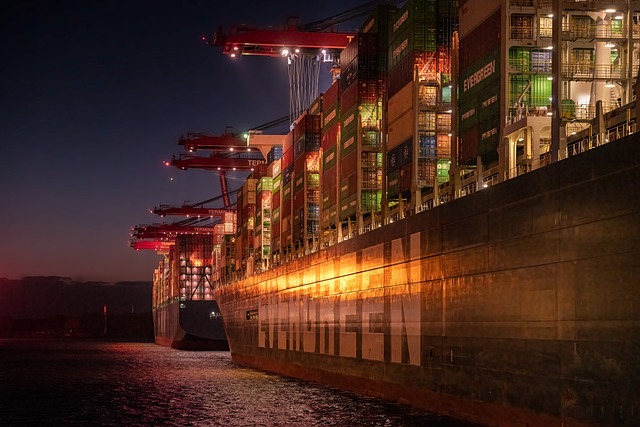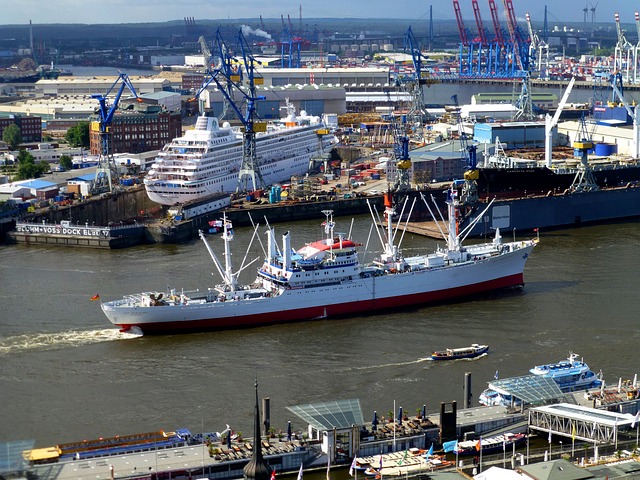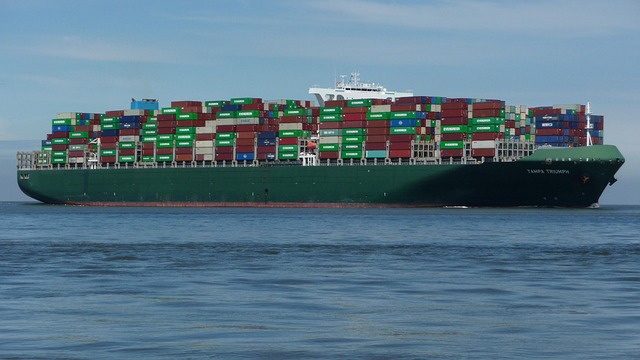Insulated shipping containers are advanced intermodal solutions designed to maintain optimal temperatures for temperature-sensitive cargo during transit, ensuring product quality and safety. With various configurations, dimensions, and capabilities, these containers seamlessly adapt to different transport modes while reducing waste and environmental impact. By leveraging cutting-edge insulation materials and precise engineering, they preserve perishable goods, pharmaceuticals, and chemicals, revolutionizing global logistics and adhering to stringent shipping standards. Their versatility makes them indispensable across agriculture, e-commerce, pharmaceuticals, and food distribution industries.
“Revolutionize your supply chain with insulated shipping containers—the ultimate solution for temperature-controlled delivery. In today’s global market, maintaining product integrity is paramount, especially for perishable goods. This article explores the fundamentals of these innovative containers and their benefits. From understanding the technology behind them to discovering diverse applications across industries, we’ll delve into how insulated shipping containers ensure optimal temperatures during transit. Stay tuned for a comprehensive guide.”
- Understanding Insulated Shipping Containers: The Basics
- Benefits of Temperature-Controlled Delivery
- How Insulated Containers Maintain Optimal Temperatures
- Applications and Industries Using Insulated Shipping Solutions
Understanding Insulated Shipping Containers: The Basics

Insulated shipping containers are designed to maintain optimal temperature conditions during transit, ensuring the safe and efficient delivery of temperature-sensitive cargo. These specialized containers are built with advanced insulation materials and airtight seals to preserve the integrity of the internal environment, whether it needs to be cool, cold, or at room temperature.
At their core, insulated shipping containers are a type of intermodal container—a versatile freight container that can seamlessly transition between different modes of transport, such as sea, rail, and road. The term ‘insulated’ refers to the container’s ability to resist heat transfer, which is crucial for maintaining the desired temperature. These containers come in various dimensions, capacities, and configurations, including refrigerated (refrigerted container), high-cube, open-top, flat rack, and office modules, catering to diverse shipping needs. Container leasing and rental services have made these solutions more accessible, enabling businesses to choose the most suitable option based on their specific requirements and budget.
Benefits of Temperature-Controlled Delivery

In today’s globalized world, where supply chains span across continents, maintaining the integrity of perishable goods during transit is paramount. Temperature-controlled delivery offers a range of benefits that significantly enhance the quality and safety of products. By utilizing insulated shipping containers, such as refrigerated or heated freight containers, businesses can ensure their cargo arrives in optimal condition, especially for sensitive items like food, pharmaceuticals, and chemicals. This technology is a game-changer in container shipping, enabling efficient transport over long distances without compromising product quality.
The advantages of temperature-controlled delivery extend beyond maintaining product freshness. These specialized containers also play a crucial role in reducing waste and minimizing environmental impact. For instance, refrigerated sea containers or ISO containers can prolong the shelf life of perishable goods, decreasing the need for frequent replenishment and subsequent waste generation. Furthermore, with options like high cube containers or modular containers, businesses have flexible storage solutions to accommodate varying product volumes and dimensions, ensuring efficient container leasing or rental without overspending on space.
How Insulated Containers Maintain Optimal Temperatures

Insulated shipping containers maintain optimal temperatures through a combination of advanced insulation materials and carefully engineered designs. These containers are specifically built to retain or dissipate heat based on the type of cargo they carry, ensuring sensitive items remain within their required temperature ranges during transit. The walls, roof, and floor of these containers feature thick layers of insulation that act as a thermal barrier, preventing external temperature fluctuations from affecting the internal environment.
Additionally, many insulated shipping containers incorporate cooling systems such as refrigerated units or forced-air ventilation to actively regulate temperatures. These systems can be powered by various energy sources, including electricity or diesel, making them versatile for different transportation modes like sea containers, freight containers, and intermodal containers. The use of these advanced technologies ensures that perishable goods, pharmaceuticals, or other temperature-sensitive materials are delivered safely and intact, adhering to strict container shipping standards and regulations.
Applications and Industries Using Insulated Shipping Solutions

Insulated shipping containers, also known as refrigerated or temperature-controlled containers, have revolutionized various industries that rely on the safe and efficient transport of perishable goods. These specialized solutions are designed to maintain specific environmental conditions during transit, ensuring the integrity of sensitive cargo. From pharmaceuticals and medical supplies to food and beverages, these containers provide a consistent and controlled environment, meeting stringent regulatory standards.
The applications of insulated shipping solutions extend far and wide. Industries such as agriculture, where fresh produce needs to be delivered promptly, rely on these containers for storage during transport. Similarly, e-commerce businesses utilizing container shipping for international trade benefit from temperature-controlled containers to prevent damage to temperature-sensitive items. Additionally, pharmaceutical companies use them to ensure the efficacy of medications, while food distributors maintain the freshness of their products. The versatility of these containers, available in various types like refrigerated, frozen, and even specialized configurations such as flat rack or open-top, makes them indispensable across sectors, enhancing supply chain efficiency and product quality.
Insulated shipping containers have revolutionized temperature-controlled delivery, offering a sustainable and efficient solution for various industries. By leveraging advanced insulation materials and design, these containers ensure optimal temperature maintenance during transit, making them indispensable in sectors like food, pharmaceuticals, and e-commerce. As the demand for rapid and reliable transportation continues to grow, insulated shipping containers will undoubtedly remain a game-changer in the logistics landscape.
